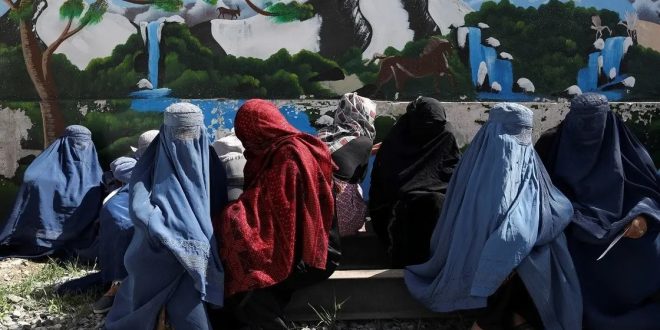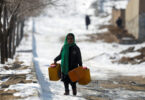KABUL (AT) : The World Health Organization (WHO) has issued a concerning alert regarding the escalating humanitarian crisis in Afghanistan with an estimated 28.8 million individuals now in need of immediate assistance – a significant increase from 18.4 million reported two years ago.
The crisis, exacerbated by the Taliban’s rise to power, has prompted urgent appeals for aid in Afghanistan. The WHO emphasizes the urgent need for increased investment in healthcare services, particularly in regions with limited access to adequate healthcare infrastructure due to the ongoing crisis. Millions are currently living without proper access to healthcare and nutrition, placing them at grave risk of malnutrition and disease outbreaks.
Moreover, another report from the International Federation of Red Cross has revealed that a staggering 15.5 million people in Afghanistan are grappling with severe food insecurity. This distressing situation is attributed to a combination of factors, including a three-year drought and a two-year economic crisis, leaving the Afghan population in dire need.
The WHO underscores that the urgency of humanitarian aid has intensified since 2021. This timeline corresponds to the Taliban’s assumption of power on August 15, 2021, following the withdrawal of US and NATO forces after two decades of conflict.
The plight of women and girls has further worsened, as they confront increased challenges in obtaining healthcare due to restrictions on education and workforce participation. Dr. Tedros Adhanom Ghebreyesus, WHO Director-General, conveyed deep concern, stating, “The situation in Afghanistan is dire, and the lack of resources and funding for health workers and facilities is jeopardizing countless lives, with women and children being the most affected. I urge donors to contribute generously to sustain our life-saving efforts.”
The revised Afghanistan Humanitarian Response Plan for 2023 outlines a strategy to address the healthcare crisis, aiming to provide assistance to 14 million individuals, including 7.5 million children and 3.1 million women. Notably, during the first half of 2023, 8.4 million individuals have already received essential health aid.
Despite these efforts, insufficient funding threatens to undermine progress. If funding gaps persist, eight million Afghans will lose access to critical health services, including 450,000 patients needing life-saving trauma care, such as blood transfusions and referrals. Moreover, approximately 1.6 million people with mental health conditions face limited access to essential consultations and psychosocial support.
The WHO emphasizes the severe repercussions of continued underfunding in Afghanistan’s healthcare system. The challenges in delivering comprehensive services, especially to vulnerable populations like women and children, risk fragmentation and heightened susceptibility, particularly in underserved regions.
Dr. Ahmed Al Mandhari, WHO Regional Director for the Eastern Mediterranean, appeals to the international community to collaborate with the WHO in addressing the ongoing healthcare crisis in Afghanistan. He underscores the urgency, stating, “We must act collectively now to bolster the Afghan healthcare system. Failing to do so could lead to catastrophic consequences, leaving a lasting impact on the health and well-being of the Afghan people.”
Echoing this sentiment, Dr. Luo Dapeng, WHO Representative to Afghanistan, highlights the critical nature of the situation and the need for immediate action. He asserts, “Afghanistan’s predicament is dire, demanding our urgent attention. For a nation already scarred by decades of conflict, the underfunding of the healthcare system is a paramount humanitarian concern. The repercussions of such underfunding cannot be overstated.”







